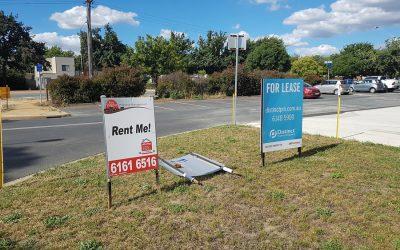
Your lease contract is one of your greatest defenses against losses from unpaid rent, property damage, and more.
Just make sure that you do everything you can to protect yourself and your property.
Deni & Brian chat about 4 little-known clauses to provide stronger protection for landlords and their properties.
Video Broadcast Version
Audio Podcast Version
Also available on iTunes, Stitcher, and wherever else you listen 🙂

Brian Davis: You guys, Brian Davis and then we hear from Spark Rental.
Deni Supplee: Hi, guys.
Brian Davis: Happy Tuesday. And again, happy New Year. I can’t say that enough. I know really midway through January now, I’m still so happy to be out of 2020, so I’m just putting that out there.
Deni Supplee: How many times have you written? 2020 instead of 2021
Brian Davis: Oh, at least a dozen to change. So as you guys join us, as always, let us know where you’re tuning in from.
Brian Davis: We always love to have some engagement with you guys. And and of course, add your questions, throw them at us live here. This is an interactive podcast and video broadcast. It’s not just a straight up podcast that’s pre-recorded in advance. We do broadcast these lives live. So we do welcome questions. Matthew Gardiner says hi and hello to you. Matthew, what have you got this here? And Matthew is joining us from Denver, Colorado. I have a soft spot in my heart for Denver and Boulder on the entire front range. I went out there briefly and I loved it. So glad to have you with us.
Brian Davis: So last week, we talked about the top 10 cities in the US for rental investing based on our gross rental multiplier. This week, we are shifting gears a little bit and we are talking about legal protections for landlords and for your properties. So we’re going to talk about for little known, but must include lease clauses for your lease agreements.
Brian Davis: Luckily for us, we do have a landlord legal expert with us today. So without further ado, Deni jump in and walk us through some of these clauses that we really need to be included in these contracts to protect ourselves.
Brian Davis: Sure.
Deni Supplee: I think when people think of leases too often, they think of beginning and how much the rent is and everybody’s names.
Deni Supplee: But there is so much more to it than that and even more than just rules and regulations. So without further ado, I’m going to go right in. There is a clause that pretty much I call it the security, not the Promis clause. And basically it tells your tenants that you don’t warranty or guarantee any kind of safety on the property. Now, that doesn’t mean that you don’t have to do anything. You have to show good faith that you are keeping a property safe.
Deni Supplee: But it also shows that if they have a car, God forbid, stolen from your parking lot and I’ve had that happen, that you’re not responsible because you have you’re covering yourself with this. So this is a clause that is one of those clauses that helps you in court. Should a tenant take you and sue you because their property got broken into or or so forth and so on.
Deni Supplee: So it’s an important clause because the last thing you want is to be taken to court and then have to come out of pocket or your insurance come out of pocket for, you know, any liabilities and stuff is just minimal. There’s also things that can happen physically to somebody so it can get very expensive.
Brian Davis: And I just want to add one thought on top of that. This is another reason why it’s so important for us to require their tenants to buy renters insurance because renters insurance does cover stolen goods and items from their apartment. So it makes the makes the process very easy for the renters to simply file a claim rather than going through the hassle of actually taking you to court as the landlord. So that is that’s a bonus clause that you should also be including in contracts is a requirement that renters buy renter’s insurance. Didn’t mean that there was a second dose.
Deni Supplee: This it is joint and several. And this is great for people who rent to college students. But it’s good for really anybody, because unless you just have one already to one single tenant, it’s not as important. But a lot of times you have roommates and they have fights because people do that and they’ll say, like, one won’t pay the rent and the other one will say, well, I’m not responsible for that. And this cute little clause makes them all responsible for the whole thing and not just a slice. And that goes for everything. So if there are damages to the apartment, everybody is fully responsible and singly responsible for those items. So they can’t say, you know, Tom is the one that broke the oven. So we’re not responsible. We’re not fixing it because it doesn’t matter because they’re all named tenants on the lease. They’re all responsible. This keeps the landlord out of the middle of these tenants, which happens a lot, and it also makes sure that in court again, that it’ll stand up, that if one tenant doesn’t pay, you don’t have to get in the middle of that whole thing. All you do is do what you have to do by your state law to evict.
Brian Davis: Absolutely. And so just a quick recap here is a joint and several liability means that every single tenant on a lease is responsible for the entirety of the rent obligation.
Brian Davis: So even if one of the roommates pays the rent and the other roommate doesn’t, even the roommate who already paid very half of the rent, they’re still responsible for the total rent. So right now, like Deni said, it takes the landlord out of the fray there because every single person is responsible for the rents. You can go after all of them if they fail to pay one. And Cosigners as well. Absolutely.
Deni Supplee: You can also put in your lease that they list you as an additional interest on the renter policy. And this way you get notified if they cancel for nonpayment and can rest. Well, knowing that the policies in force, which is an added bonus. So that’s a great, great tip.
Brian Davis: Christine says Hello, good to have you with us.
Brian Davis: All right. So Deni, the remaining two clauses that landlords should really be including in everybody’s contract to protect themselves?
Deni Supplee: Well, a waiver of a future default. So this happens a lot. And, you know, you want to be a nice guy and say, don’t worry, you don’t have to pay me for the charge or the NSF fee or you’re going to give them $200,00 off the rent this month or whatever. And a lot of times tenants can be quite savvy and they’ll say a precedent is set. You haven’t charged me a late charge 4 ir 5 times, so I didn’t think I had to pay a late charge anymore.
Deni Supplee: When you have this clause in your lease, it kind of says, no, that’s not how it works just because I choose. To offer gimmee doesn’t mean that I have to. There’s not an obligation in it, and that’s because there are things that you don’t even think of until you’re sitting before a judge. And that judge says, well, you did set a precedent here, so.
Brian Davis: All right. So a one time exception that you make doesn’t become the long term rule, right? It’s a great cause to include.
Brian Davis: All right. The fourth and final little known these clause that all the awards should be including, you know, what do we have here?
Deni Supplee: A condition of the property and not just the old, oh, we walk through and everything’s fine. Include it with a with your move in and move out inspection report and make sure that there’s an amount of time that your tenant has to return your move in inspection report. And if they don’t, you put it in your lease that it is deemed as the property is acceptable and in good condition. So when you go to court and you have the condition report and they don’t, but this is in your lease, you have a little bit more to stand on there. If a tenant is saying that there’s damages that they probably caused or, you know. That are there, but they have no proof of and it’s important. This is one of the biggest issues is taking somebody your town and taking you to court for lack of returning their security deposit and more often than not, it they win. But if you have a clause like this and you can bring the report and you can say they were supposed to return it in 10 days, never did. So they accepted the property in that condition. It was. And when I gave it to them, it was in good condition.
Brian Davis: Right. And this is this is especially important in an era when so many landlords are investing long distance and aren’t in the same physical city as their own property. So they can’t necessarily walk through the property with the tenant in person to mark off and fill out the move in and out inspection report. So if if you are handing over that report to the tenant to fill out on their own without you physically there, you need this clause in your lease to as an enforcement mechanism to make sure that if they don’t return that to you, if they don’t fill out that move in or move out inspection report and get it back to you, then they are tacitly claiming that the property is in excellent condition and they’re not violating any existing damage.
Brian Davis: So like you said, this helps you get out, helps you keep the security deposit if the tenants cause damage to your property. And by the way, we did so these four clauses that we just mentioned, those are just the tip of the iceberg.
Brian Davis: We do have an entire article on 9 little known lease clauses that will protect you and protect your property. We’ve added a link to those in the comments here for you to take a look at more extensively and as a quick recap. So the first clause is a security not promise clause. And as the bonus points there, we also recommend you require that tenants buy renter’s insurance as a separate clause, second class as joint and several liability clause. The third is a waiver of future defaults clause, and the fourth is a condition of property clause.
Brian Davis: All right. Is there anything else you want to add before we call this episode complete?
Deni Supplee: No. Just make sure that you do everything you can to protect yourself and your property. And, you know, it’s inevitable. We live in a litigious society. Tenants are getting smart, so they’re taking landlords off.
Brian Davis: Yeah, that is a great point. And just to return to something you said in the very beginning of the episode, too many layers. Think of the lease agreement as a formality. It is not a formality. It is your legal shield to protect you from lawsuits and to protect your property from damage so you can actually enforce your security deposit.
Brian Davis: On that note, we will see you guys next Tuesday at 02:00pm Eastern, 11:00 a.m. Pacific here on the East Coast next week.
Deni Supplee:D That’s right. Yes. We have a special guest for you guys next week
Brian Davis: And as always, please remember to read and review the podcast wherever you listen to. It’s one of the biggest favors you guys can do for us. We appreciate it.
Brian Davis: And we will keep cranking this content out for you for free. All right. Have a great week, guys. And Matthew Gardner says, thank you and Matthew. Thank you. We appreciate it. That was awesome. Yeah, a great tip. And thanks again, guys. We’ll see you next Tuesday.
Deni Supplee: Bye bye.























